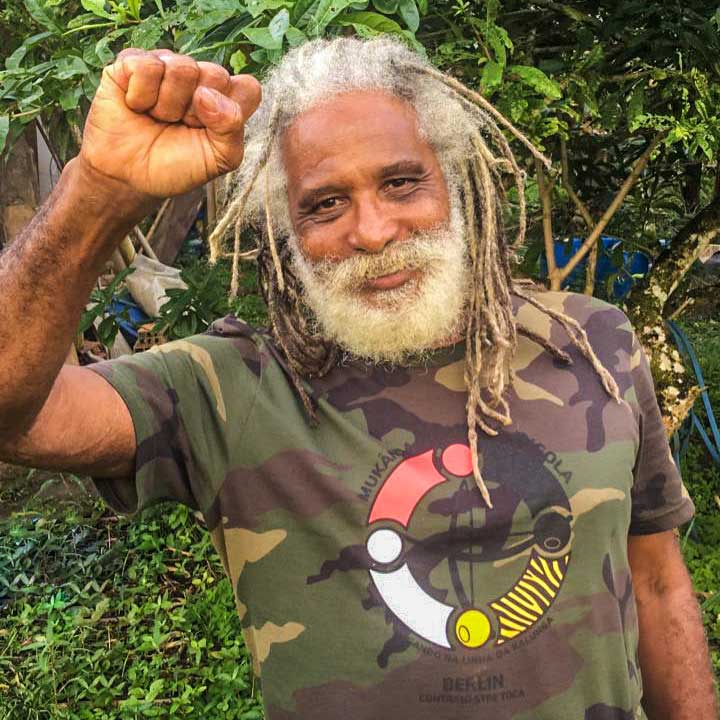Mukânda Capoeira Angola
Even while Mestre Cobra Mansa was not the founder or head of Mukânda when the group was founded, he took the role of our technical and philosophical inspiration for the knowledge production within our community. We do strive to preserve this indispensable connection between master and student, a foundation of the ancestry principle and a fundamental trait within the tradition/transmission not merely of Capoeira Angola, but within the large majority of cultures with African origin.
In June 2023 Mestre Cobra Mansa became then officially part of the group Mukânda and is now establishing an affiliate group of Mukânda in Bonfim (Valença, Bahia).
ABOUT THE NAME – DEFINITION / MEANING MUKÂNDA
Mu = within / Kânda = Community
Within the Community of Capoeira Angola
[Kikongo, Bantu language]
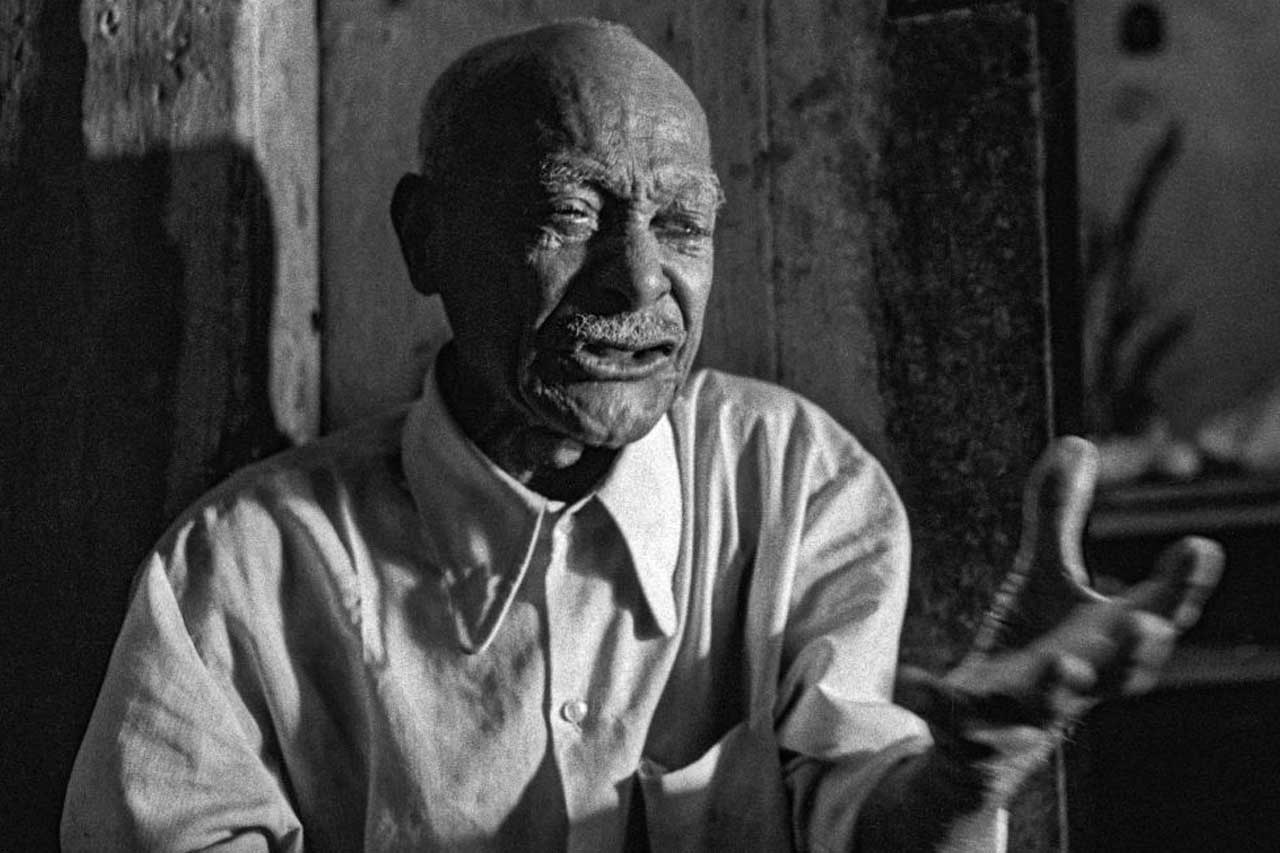
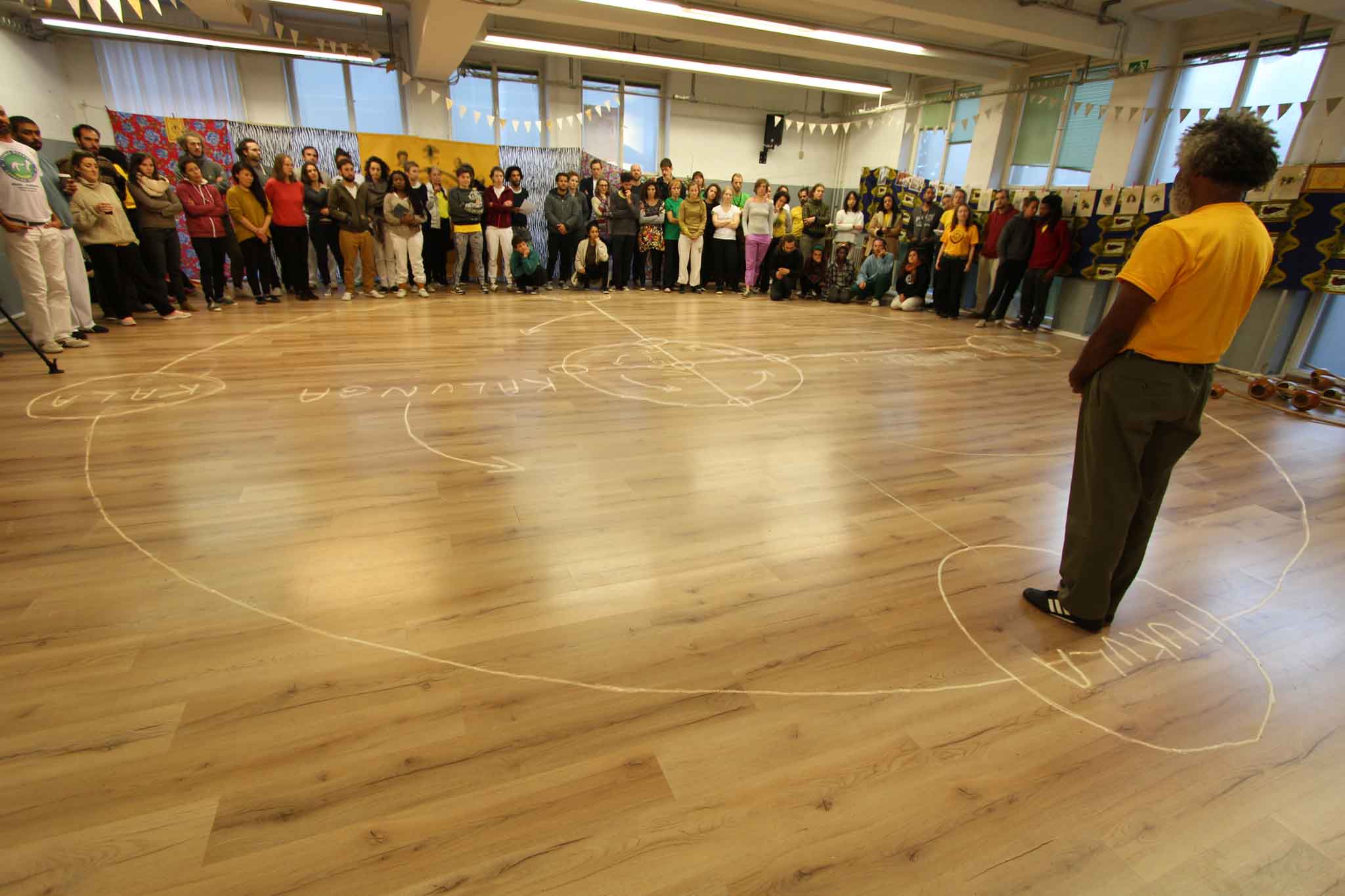
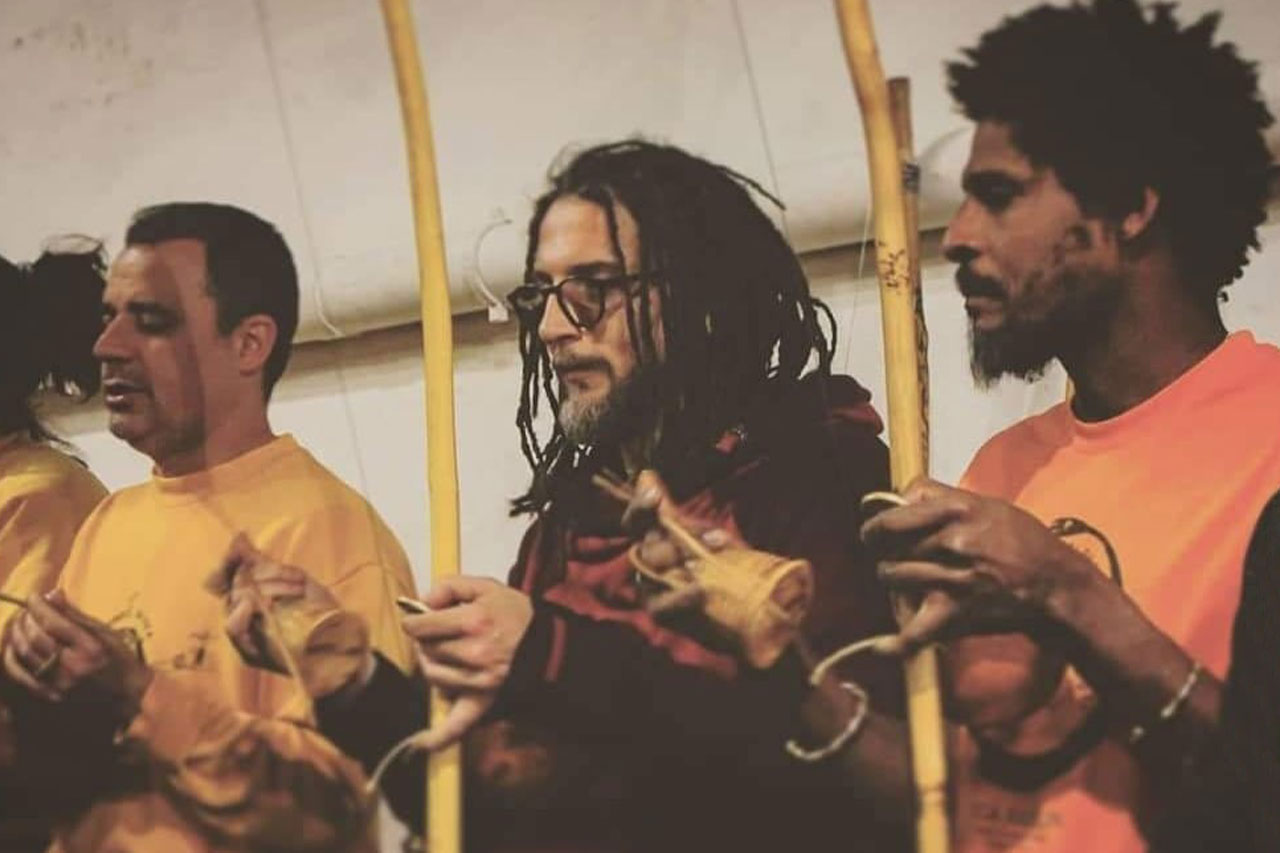
Bakongo Cosmogram – Dikenga
In his research, Mestre Cobra Mansa underlines that African cultures as well as those in the diaspora, apply very specific paradigms in their understanding of our reality and human existence. One such paradigm is the Bakongo Cosmogram, a chief symbol of the Bakongo (Kongo culture, Bântu ethnic group in the center of West Africa) worldview.
It consists of a circle crossed by two lines that intersect at the midpoint: a vertical line (Talema) and a horizontal line (Kalunga). The Kalunga line, according to Fu-Kiau, is the plane of the equilibrium of all existence it divides as well as unites the circle horizontally between the world of the living above the line and the spiritual world of the ancestors below the line.

African Cosmology of the Bântu-Kôngo
Principles of Life & Living
Kimbwandende Kia Bunseki Fu-Kiau, PH.D.
Mukândeiros
🇧🇷 Brazil
🇮🇹 Italy
🇫🇷 France
🇩🇪 Germany
🇷🇺 Russia

🇩🇪 Mukânda Berlin
The group in Berlin was established in 2014 by Treinela Kathi & Contramestre Toca.
Kathi started her journey in Capoeira Angola in 2007 with the group Angola Dobrada (ACAD), training with Mestre Rogerio and Mestre Wellington-Negão. Living in Brazil for one year in 2008, she spent a long time in Bahia practising with different Masters. After moving to London in 2011, she became student of Toca. In 2013 she lived another year in Brazil (Rio de Janeiro), dedicating her time to the practice of Capoeira Angola.
Toca started to practice Capoeira Angola in 1994 in Duque de Caxias, Rio de Janeiro, Brazil with Mestre Manoel (Grupo Ypiranga de Pastinha). Having lived in London since 2005, Toca contributed to the development of the group GCAL (Grupo de Capoeira Angola Londres), taking on the responsibility of group leader in 2008 and formalising the group as FICA London in 2012.
Toca was merited the title of Treinel in 2013, at the international FICA meeting in Belo Horizonte, Brazil.
After moving to Berlin in 2014, Toca & Kathi continued their commitment with Capoeira Angola, establishing together the group FICA Berlin. The group has held annually international events with Mestre Cobra Mansa, Mestre Valmir, Mestre Carlão, Mestre Pedro Lima, Mestra Gegê and also Mestra Janja. Registered as a German non-profit organisation, the group has also realised a number of children and youth projects.
In 2019 Toca was merited the title of Contramestre at the international FICA meeting at the Kilombo Tenondé in Bahia, Brazil.
In August 2022 Kathi was merited the title of Treinela by Mestra Janja & Mestre Cobra Mansa after more than 15 years of dedication & commitment to Capoeira Angola, also honouring her effort to build up the group and strengthen Capoeira Angola in Berlin.
Currently, the group provides classes four times per week. Beyond movements, CM Tocas & T. Kathis teaching emphasise the traditional role of music, ritual and philosophy of Capoeira Angola, in unison with the physical practice. Since 2015 they conduct a monthly roda. Each roda features a different theme through a small exposition concerning the history and the fundaments of Capoeira Angola. Receiving visitors from diverse capoeira groups, their roda has contributed to bringing closer capoeira groups in Berlin.


🇮🇹 Mukânda Bologna, Napoli, Pescara, Pisa & Vicenza
The affiliate groups in Bologna, Pescara, Pisa, Napoli & Vicenza (Italy) are supervised by Contramestre Medusa, who is currently living in Pisa. Treinela Alice is giving classes in the city of Bologna, Paolo Casolino in Pescara, Treinel Ciro Giramundo in Napoli, Contramestre Medusa in Pisa and Stella in Vicenza.
Medusa had already been playing berimbau for two years when he discovered capoeira. It was through his contact with the musician Silvio Cunha from Bahia that Medusa built his very first berimbau back in 1993.
He began practicing capoeira with Zequinha (José Francisco dos Santos Filho), who today is a Contramestre of the Associação Capoeira Angola Pernambuco. With Zequinha he founded the Italian branch of the group Capoeira Angola Vadiação in 1999, supervised by Contra Mestre Rosalvo, who is now the Mestre of the Grupo Vadiação in Berlin.
During an event in Berlin in 2000 he met Mestre Cobra Mansa and would start following him wherever he taught Capoeira Angola. Four years later, he left the group Vadiação Itália. He brought Mestre Cobra Mansa to Bologna to teach a workshop in 2007; and it was on that occasion that Medusa was invited to become part of the International Capoeira Angola Foundation which Mestre Cobra Mansa had founded together with the Mestres Jurandir Nascimento and Valmir Damasceno.
Between 2007 and 2019 Medusa organised two international events annually. He established the Kilombo da FICA in Pisa in 2011, a Capoeira Angola school and a space for a range of theatre, dance and martial arts groups, while also supervising two other affiliate groups in Italy: Bologna and Pescara.
Medusa was recognised as a Treinel of Capoeira Angola by FICA in 2013. Starting in in 2018, he developed the project Roda Trimestral together with the other European FICA groups.
It was in 2019 that Medusa was received recognition as a Contramestre of Capoeira Angola at the international FICA meeting at the Kilombo Tenondé, near Valença, in Bahia, Brazil.
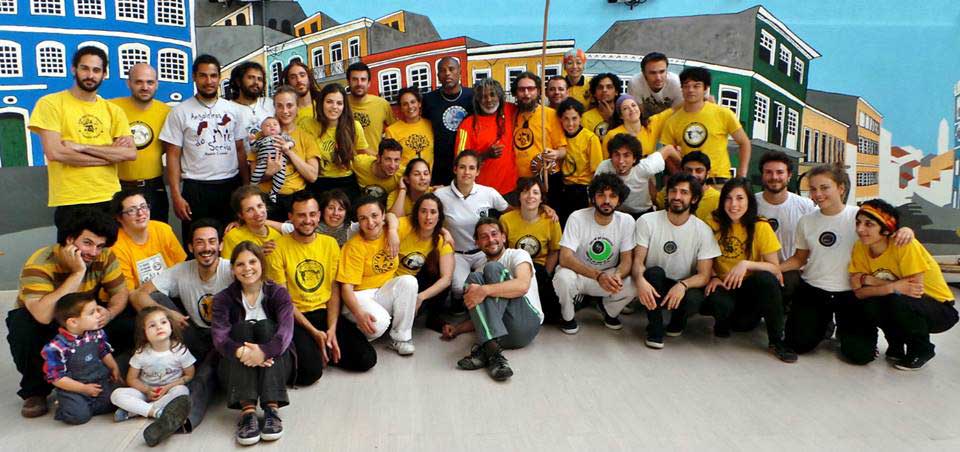
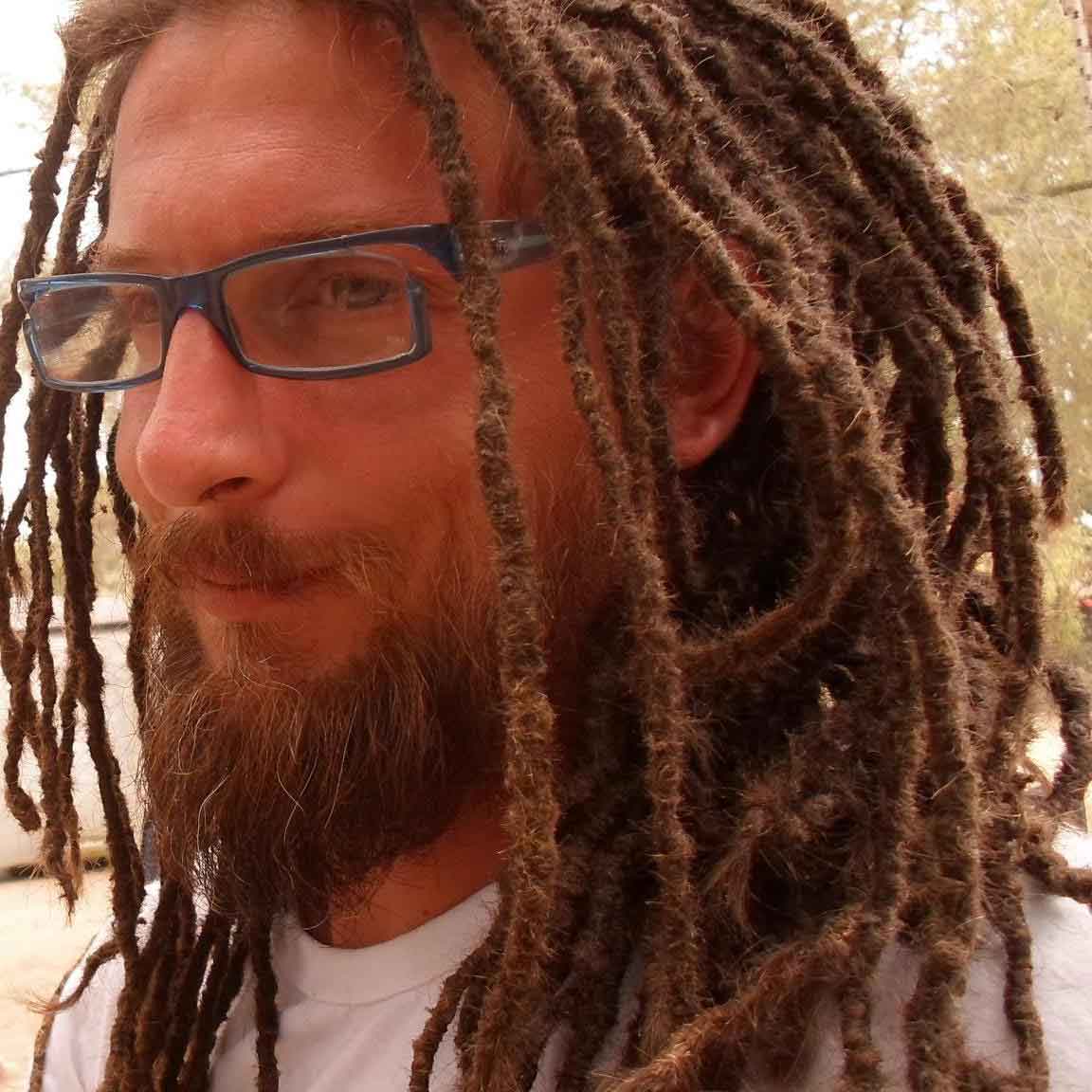
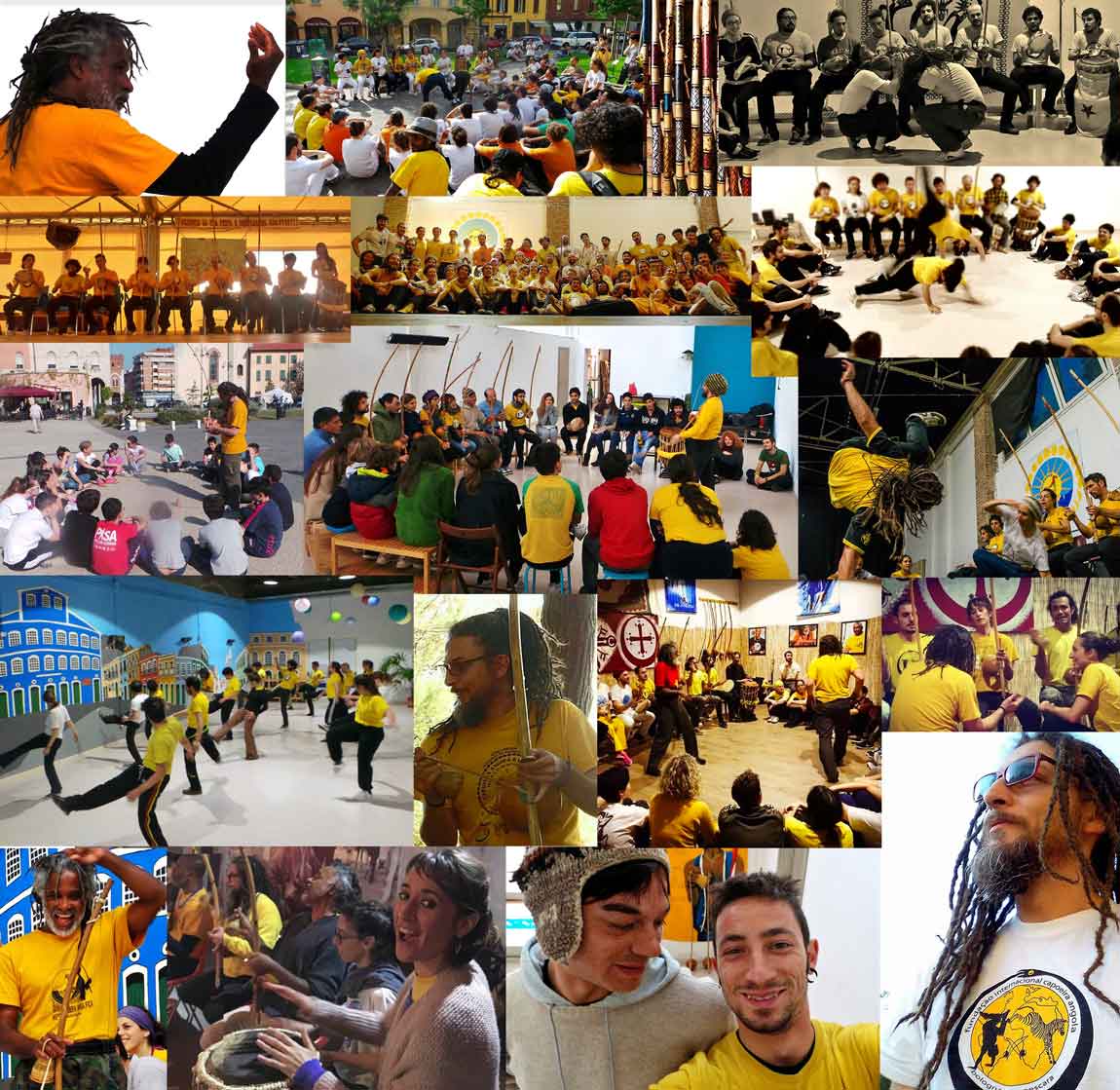
🇧🇷 Mukânda Curitiba
The leader of the affiliate group in Curitiba (Brazil) is Mauricio Pessoa Salamunes who started practicing Capoeira Angola with Contramestre Toca and under the guidance of Mestre Cobra Mansa in 2011, in London, UK.
In 2022 he established his own Capoeira Angola study group in his hometown Curitiba (Brazil) under the guidance of Contramestre Toca. In 2023 the group became an official affiliate of Mukânda Capoeira Angola.
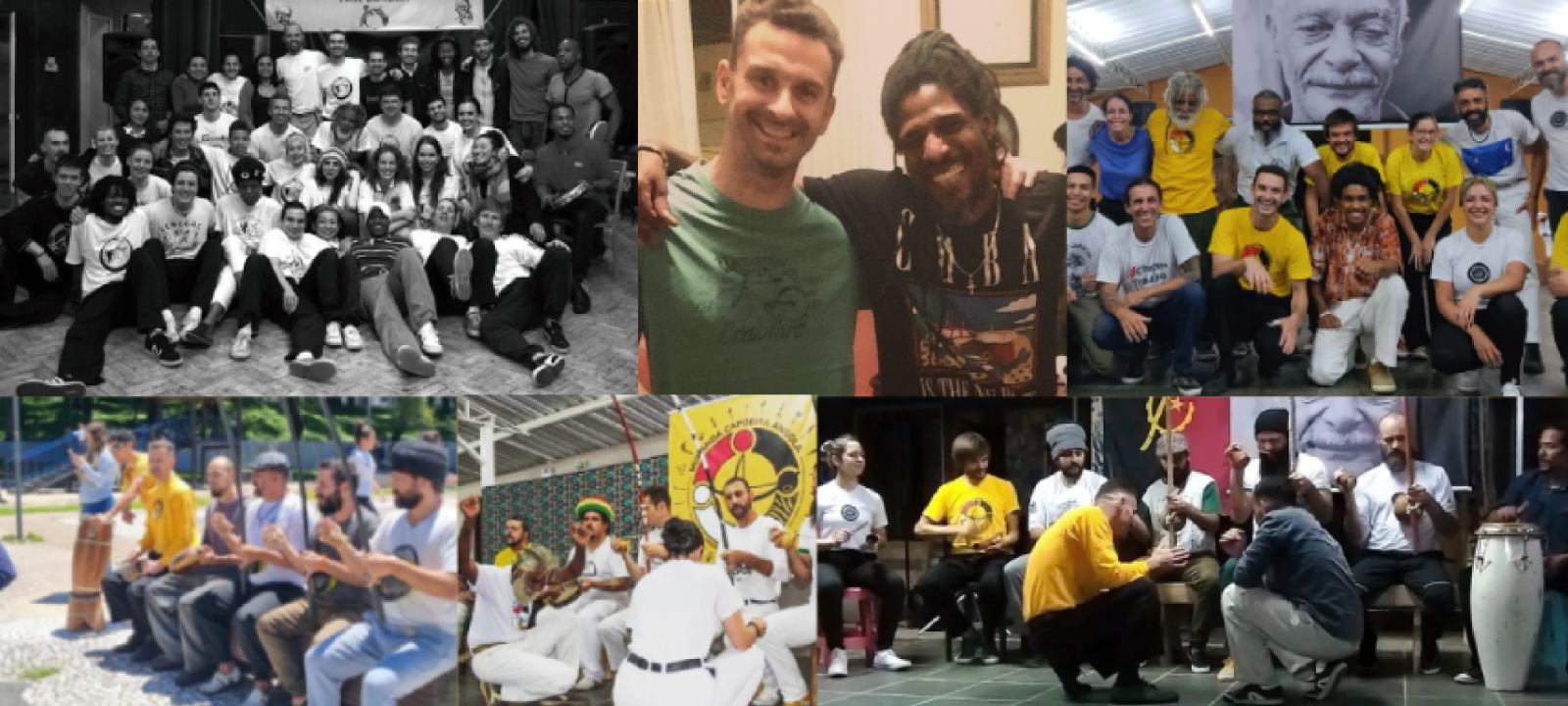
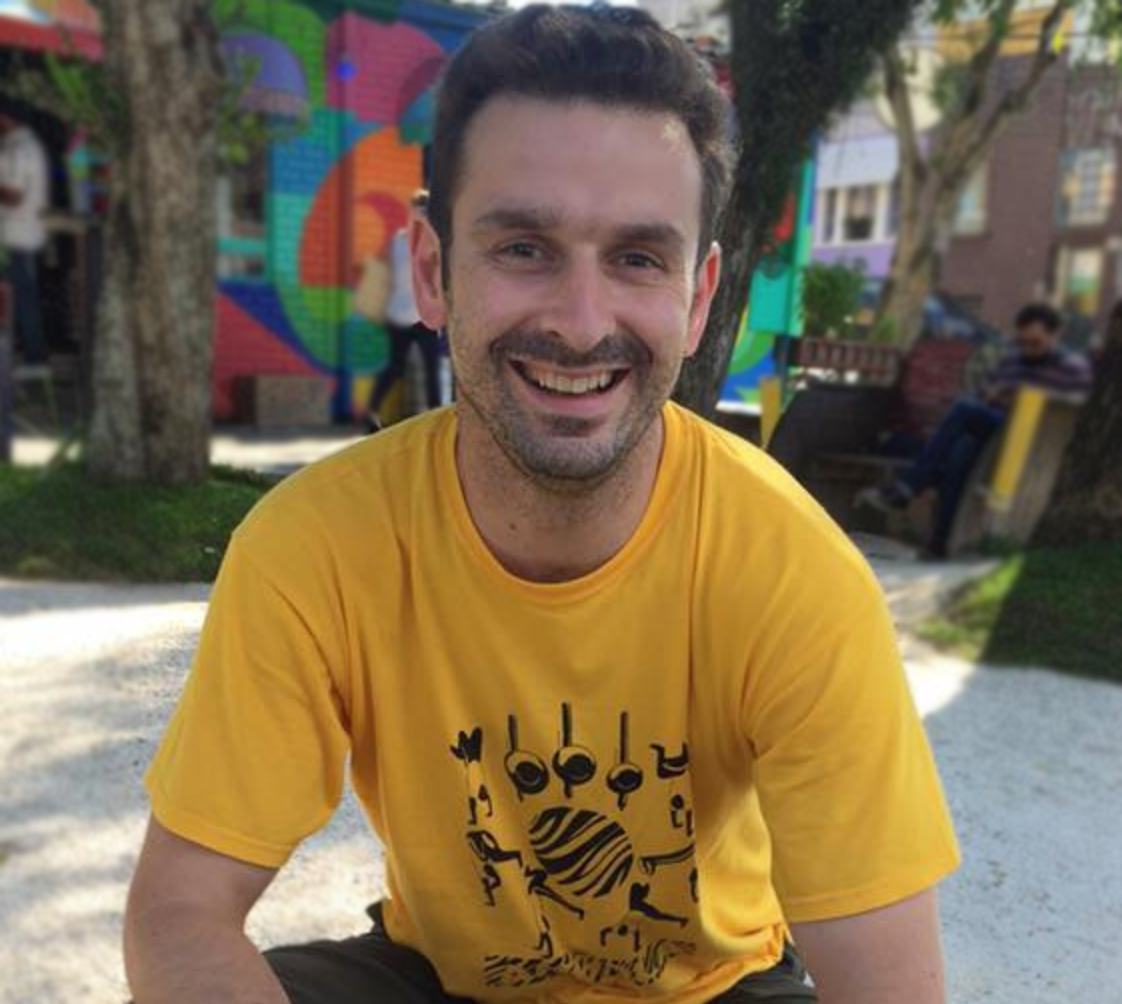
🇧🇷 Mukânda Florianópolis
The leader of the affiliate group in Florianópolis (Brazil) is Treinel Ímã (Imah Maxim Shtefan) who started practicing Capoeira Angola with Prof. Saveta P. under the guidance of Mestre Cobra Mansa in 2001, in Moscow, Russia.
During 2001-2013 he organised on a yearly basis various capoeira events in Russia with the presence of Mestre Cobra Mansa, Mestre Valmir and Mestre Gegê among others. During this time he has also been teaching being part of FICA Moscow and giving guidance to the FICA groups in Samara and Saint Petersburg (Russia).
It was in 2011 that Ima earned the title of Treinel at the 16th International FICA Meeting in Cachoeira, Bahia, Brazil.
In 2021 he established his own Capoeira Angola study group in Florianópolis (Brazil) under the guidance of Mestre Cobra Mansa. In 2023 the group became an official affiliate of Mukânda Capoeira Angola.
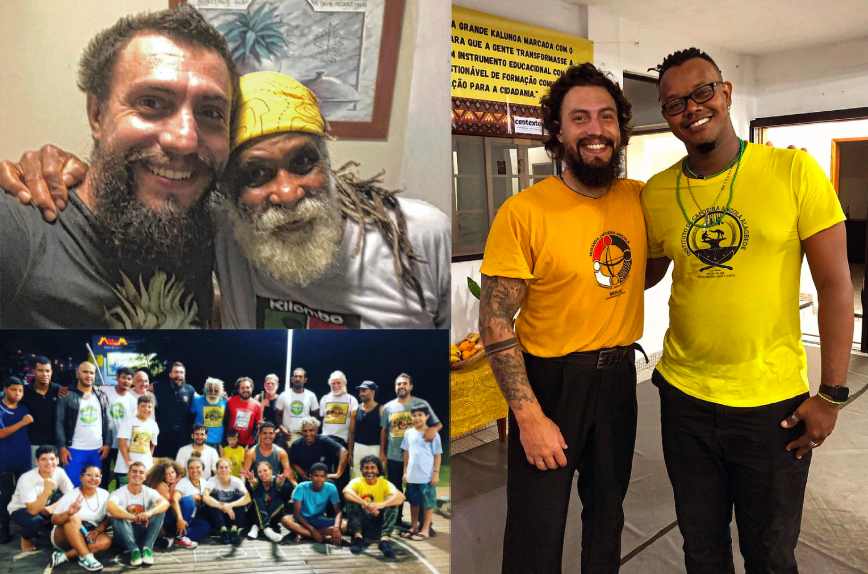
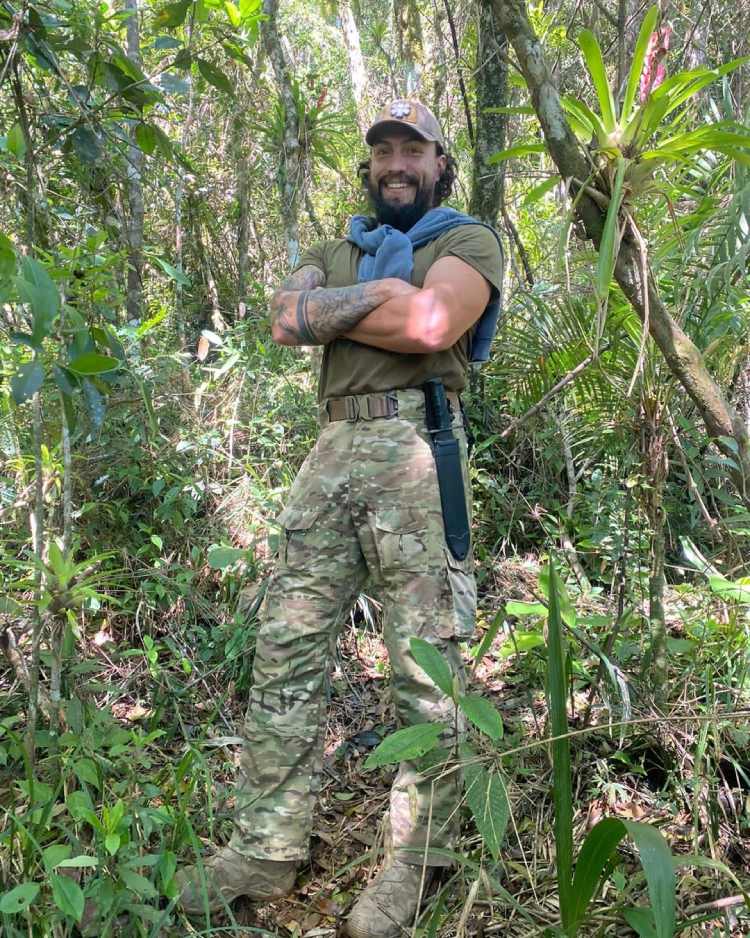
🇫🇷 Mukânda Montpellier
The affiliate group in Montpellier (France) is supervised by Contramestre Everson Leão, who is originally from the state of Goiás in central Brazil. In 1988/1989 he had his first informal contact with Capoeira Angola through two natives of Bahia: Aloísio and Zé Luis. It was on this occasion that he received his first teachings in this art.
In 1993 Everson Leão discovered Capoeira Angola with its whole cultural and philosophical universe in the lineage of Mestre Pastinha, practicing with the group “Meninos de Angola” in the city of Goiás and with the group “Angolerê” in Goiânia in contact with Leninho and Xuluca.
In December 2000 he met Mestre Cobra Mansa in London and began training with him, visiting him several times at his home in Washington, DC and inviting him to Montpellier.
The activities of the group in Montpellier began in September 2000. In 2001, the group gained its autonomy by being officially registered as a non-profit organization named “Angoleiros do Cerrado”. This name was chosen in relation to Everson Leãos origins in central Brazil where you can find the typical vegetation of the region: the Cerrado.
In May 2004, the association officially became FICA Montpellier placed under the guidance of Mestres Cobra Mansa and Valmir. The group has been organising a total of 17 International Capoeira Angola Meetings, usually held in May and always bringing together various Mestres. Those events offered activities related to Capoeira Angola and Afro-Brazilian culture and received between 50 and 100 participants from all over the world.
Nicolas Pourchasse has been a student of Contramestre Everson Leão since the beginning of their group history and is also giving classes in France.
It was in 2019 that Everson Leão earned the title of Contramestre at the international FICA meeting at the Kilombo Tenondé near Valença in Bahia, Brazil.
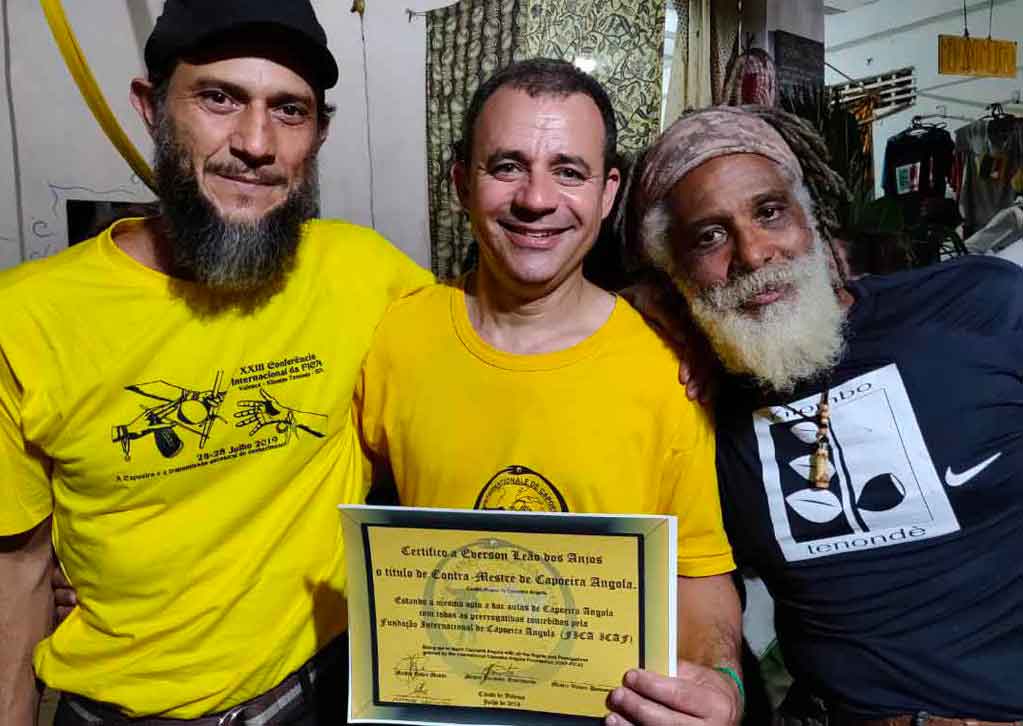
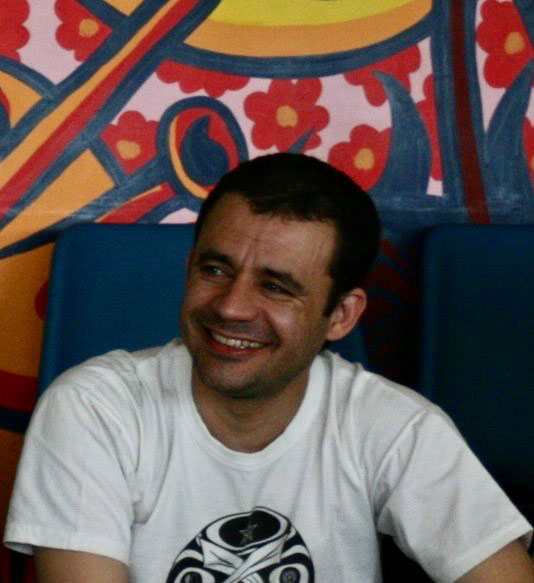
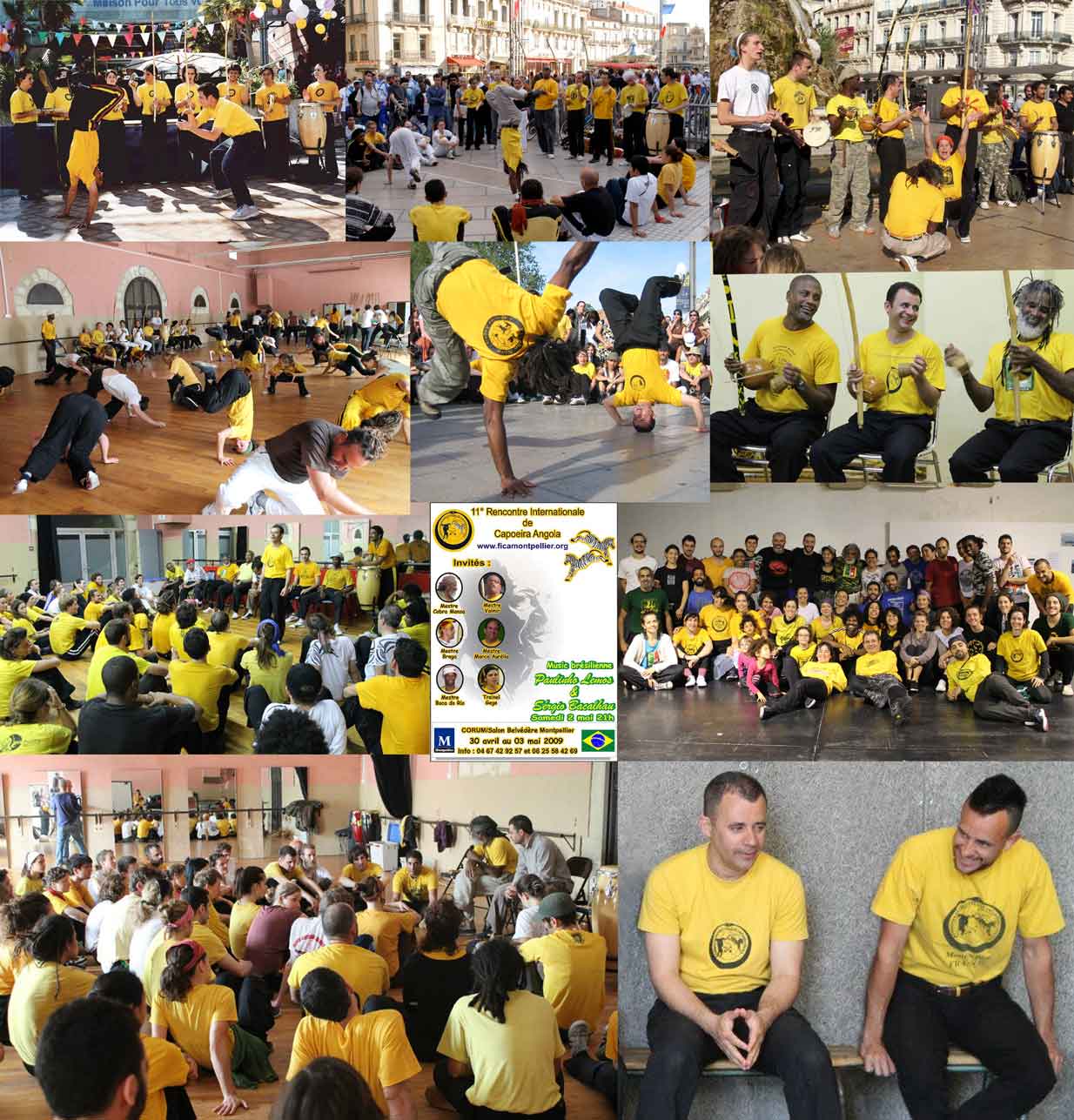
🇷🇺 Mukânda Saint Petersburg
The affiliate group in Saint Petersburg was established on October 10, 2008 by Verde with supervision from Treinel Ímã (then FICA Moscow, now Mukânda Florianópolis). Verde led the group until September 2014 when Daniel took over the responsibility of group leader.
From February 2019 until today, the group has been led by Camara. On November 9, 2019 the group became a FICA study group, supervised by Contramestre Toca.
The group has held two events with Mestre Cobra Mansa, in October 2009 and June 2013, two events with Contramestre Toca, in February 2011 and September 2019, and several events with Treinel Tapani (FICA Helsinki) and Treinel Ímã (FICA Moscow).
The group Mukânda Capoeira Angola St. Petersburg is under the guidance of Contramestre Toca (Berlin/Germany).
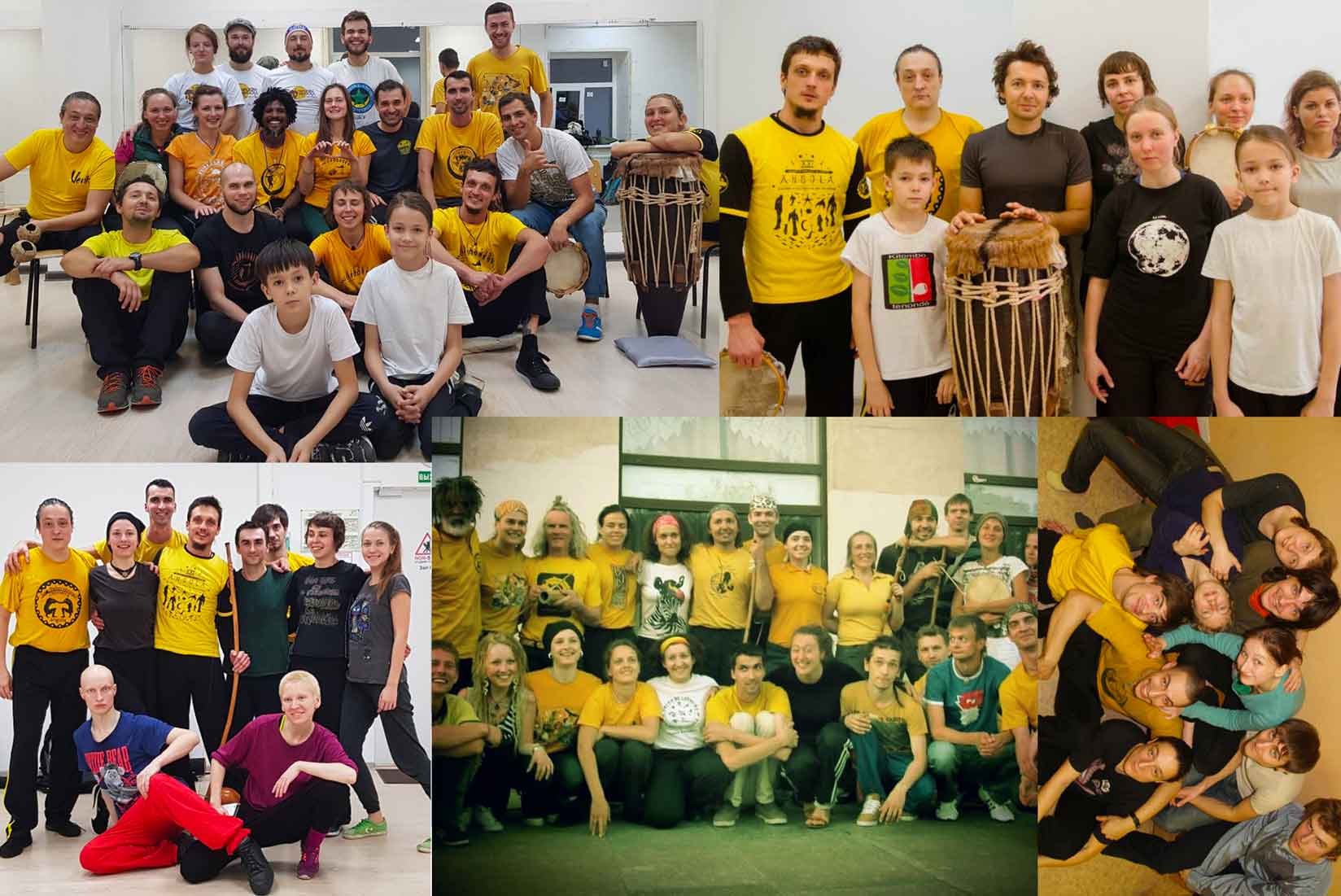
Mestre Cobra Mansa & the Kilombo Tenondé
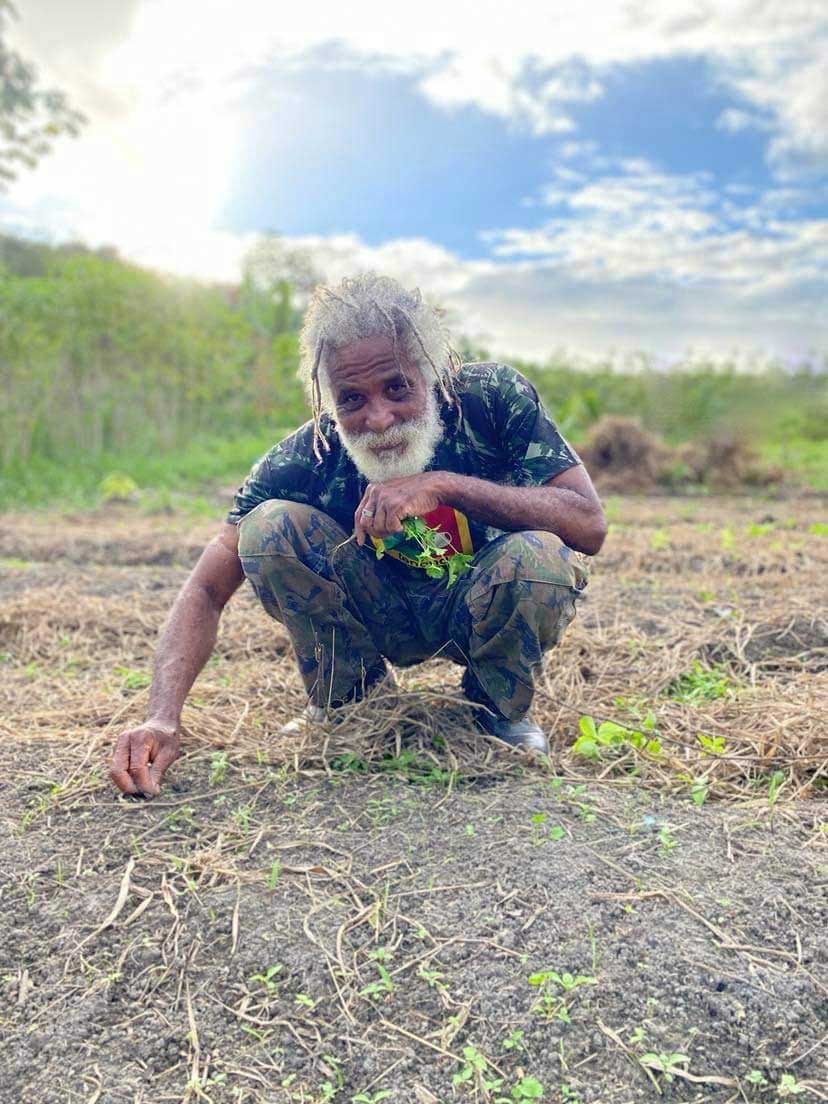
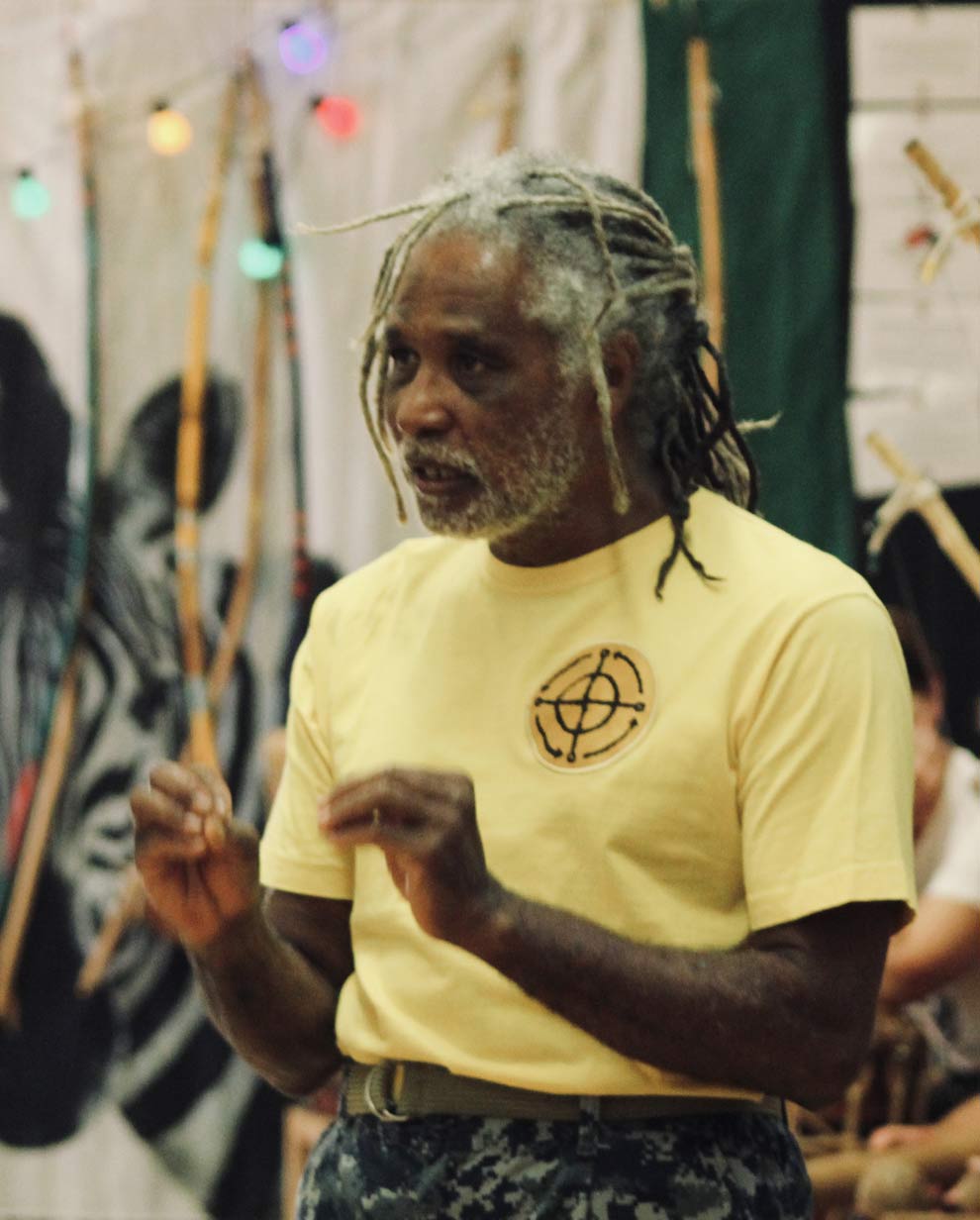
A native of Duque de Caxias, Rio de Janeiro, Brazil, Cinézio Feliciano Peçanha, better known as Mestre Cobra Mansa, has dedicated the last 40 years of his life to training, teaching, researching, and preserving Capoeira Angola. He began training Capoeira Angola at age 14 and his agility and energetic personality made him a natural. The name Cobra Mansa means “tame snake” and he was so named because of the way he moved in the roda. He is thin, quick, agile, and plays laughing all the time. His passion was not without purpose, however. Since his early years, he has actively fought against racism and social injustice, using Capoeira as a tool to liberate and educate.
He was an active member in the Black Movement in Brazil, and worked with street children as part of the well-known “Projeto Axé.”
In 1976 he began training with Mestre Moraes and was graduated with the title of Mestre by him in 1986. They founded the Grupo de Capoeira Angola Pelourinho (GCAP) in Rio de Janeiro and Salvador. Cobra Mansa has researched all aspects of Capoeira Angola, from its origins in Africa through its turbulent history in Brazil. He has interviewed and videotaped many of the old masters in an effort to accurately understand and document the events leading up to the present. He is now a leading expert, not just on Capoeira Angola, but on the berimbau (the musical bow), the Black Movement and African martial arts. In 1993 he graduated in Physical Education from the Catholic University of Salvador.
In 1994, Cobra Mansa went to Washington D.C. at the invitation of the Ausar Auset Society to teach Capoeira Angola to children. His classes also grew in popularity with adults, and a new branch of GCAP was established. In 1995, Mestre Cobra Mansa brought a large group from the U.S. to Brazil to the First International Capoeira Angola Encounter sponsored by GCAP. This encounter brought together practitioners of Capoeira Angola with the old masters and scholars. The exposure stirred the commitment of many students in Washington to continue this exchange.
In 1996 Mestre Cobra Mansa left GCAP and formed the International Capoeira Angola Foundation (ICAF) in Washington, D.C. Together with Mestre Jurandir Nascimento and Mestre Valmir Damasceno, he expanded ICAF and has created a Capoeira Angola community with affiliate schools in the United States, Brazil, Europe, Asia, and Africa. He has committed much time and energy to nurturing these affiliate groups, especially those that train without a Mestre.
In 2004 Mestre Cobra Mansa moved back to Bahia, Brazil and started dedicating his time to his capoeira cultural arts center in Coutos, Bahia, and his organic farm Kilombo Tenondé, in Valença, Bahia. There he has been working in agro-ecology, permaculture, bio-construction, agroforestry and community organisation.
He has organised annually two popular events at the Kilombo Tenondé, the Permangolinha and the Permangola. The objective of this events was to integrate the philosophy of Capoeira Angola with the ethics and principles of permaculture, with a series of workshops that provide an introduction into alternative systems of construction, sustainable agriculture, energy and Capoeira Angola.
Mestre Cobra Mansa also dedicated the last years of his time in researching the African martial and musical arts, Bantu culture, Bakongo cosmology, identity and ancestry. In 2019 he finished his PhD (Gingando na linha da Kalunga: Capoeira Angola, Engolo e a construção da Ancestralidade), supervised by Dr Eduardo Oliveira in the multidisciplinary Postgrad programme of Knowledge Dissemination at the Federal University of Bahia (Difusão do Conhecimento da Universidade Federal da Bahia, DMMDC/UFBA).
